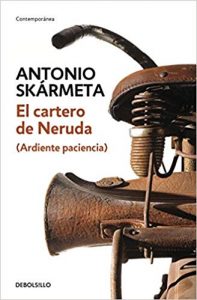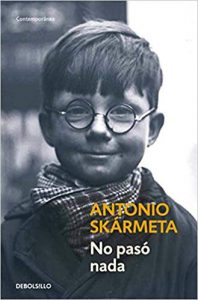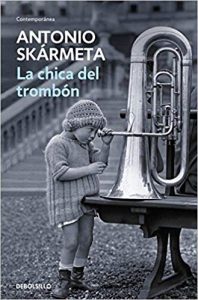Beyond the theme and narrative intention, the generational coincidence between Chilean authors Isabel Allende y Antonio Skarmeta make Chilean literature one of the strongest current bastions of Latin American literature.
If we also consider the cinematographic projection of some of his great works, we look at a parallel bibliography that shares, perhaps by generational harmony, a sociological review, a dramatic intention and an action transmitted from very vivid characters. Nothing to see in the final style but more of a coincidence in the background.
In the case of Skármeta, his taste for cinema extends to writing scripts, also splashing a novelistic production loaded with that humanism of intrahistories in settings as disparate as the different ages of the human being with its discoveries and frustrations, of the social portrait with its critical load or its will to reveal the contradictions and imbalances of the individual in general morality.
Perhaps this is how he tries to encompass the immeasurable, because in so many good novels or in some of his forays into cinema, valuing can always be a vain exercise. Each story is an encounter with the essential, with that nakedness that every author must seek to awaken consciences, to reach that famous chord.
The literary and cinematographic tastes and predilections of Skarmeta they are also very present in his works. And Neruda becomes in this aspect something recurrent, a character and a work thoroughly revisited in Skármeta's extensive creation.
But regardless of these details, any of his novels have that taste of the independent jewel, of creation loaded with imprint and defeated by the will to tell something new, to delve into characters capable of transmitting essences adorned in forms and an unmistakable style. .
Top 3 recommended books by Antonio Skármeta
Neruda's postman
A novel that serves two fascinatingly integrated aspects. The contextualization of the great poet and the humanization of all creation, coinciding with that close relationship between the genius and the postman, shared as a relationship between equals in the last instance.
The prospect of Pinochet's coup, so close in time to Neruda's death, served Skármeta to tune in with the poet who preludes the socio-political disaster. The publication of the novel years later, during Skármeta's exile, ends up endowing the story with that melancholic touch in which Neruda represents idealization and Mario Jiménez, the postman manifests himself as that part of the people that yearns for freedom with the intensity of the greatest of poets.
A magical balance that ends up resulting in the most intense humanization of genius and the poetic essence that resides in every human being.
Even more so in the face of the black omens of the coup d'état projected in the near future for both characters who, meanwhile, continue to be involved in that effort to live until they reach the forced abyss of circumstances.
Nothing happened
The bitterness of all exile is the feeling of having been stripped of everything, especially the paradise of lost time, which in the case of this story is even more serious as it is a childhood.
And yet, while Lucho is that boy who faces his maturity in distant Germany, one can think that his process of adaptation to the circumstances goes down that path of those who still have time and little past to face what comes in the future. life.
But in addition to being exiled, Lucho suffers that dislocation in a country in which at times his mere existence seems an affront to those who feel heirs of the earth, with that cancer of ideology from fear and repudiation.
Too many conflicts not to find in Lucho the individual who faced life with rebellion, with incomprehension, from the last steps of childhood to the not always clear horizon of the future.
And yet in the disappointment the important things are more intense. Friendship, discovery, love and a sum of experiences that make Lucho capable of facing his life, one of those heroes of modern tragicomedies.
The girl with the trombone
One of Skármeta's books that is most closely related to the sociological aspects of a Chile moved by political inertia whose known end was opened to one of the last bloody dictatorships in Latin America.
The plot revolves around Alia Emar, unaware of the goings-on, even at the international level, which tried to move the 1970 elections towards one candidate or another, in one of the last great scandals of international politics.
Thus, the journey of the sensitive Alia, unaware of the political sordidness and manipulation that would derive in Chile's most turbulent years, leads us through a love story that shines among all those dark aspects of the country's design.
Music and cinema are the focus of an Alía in whose dreams and passions we find the necessary counterpoint to consider that far beyond the circumstances, light years away from the intervention of alternative powers over Chile, there were souls that simply sought their place in the world.




1 comment on “The 3 best books by Antonio Skármeta”